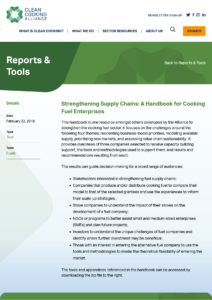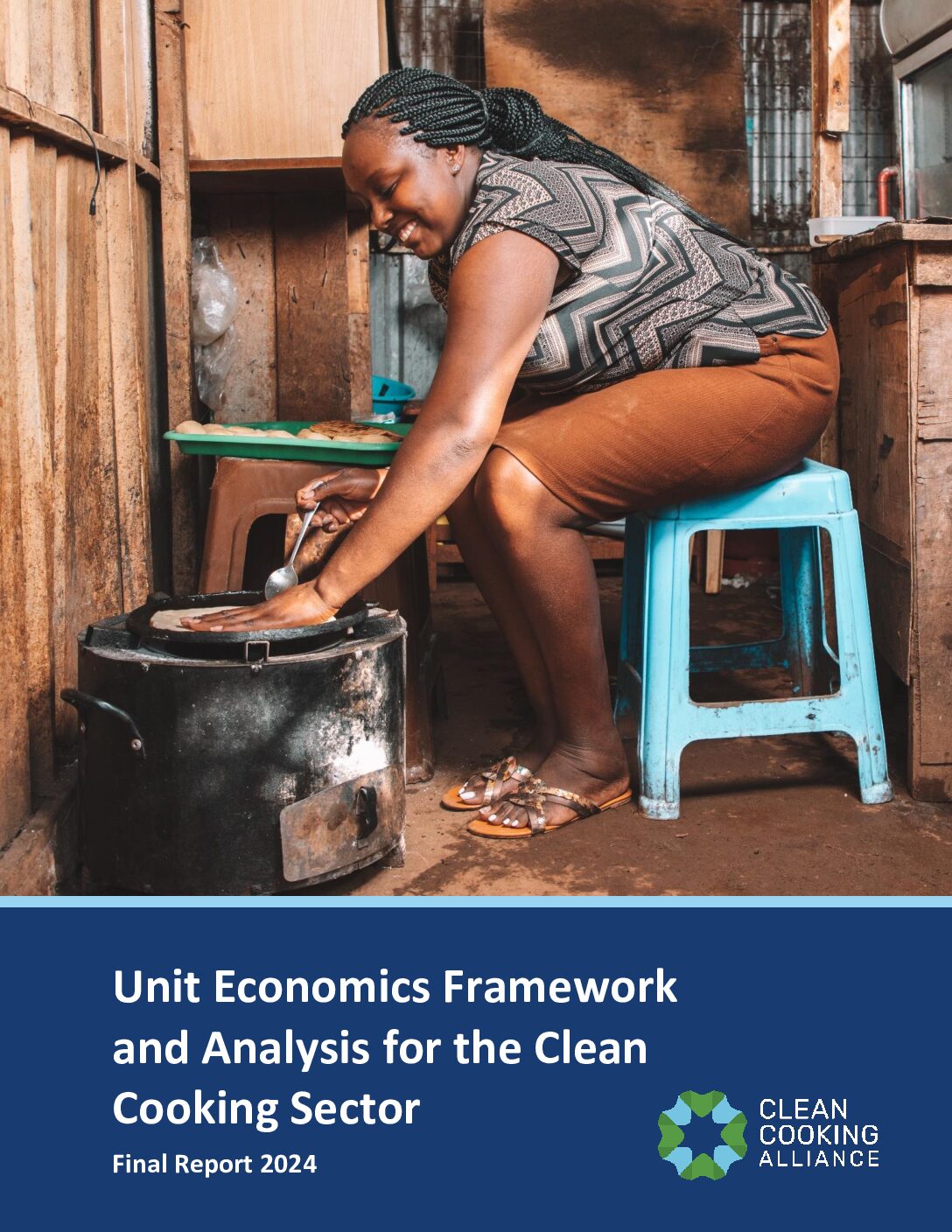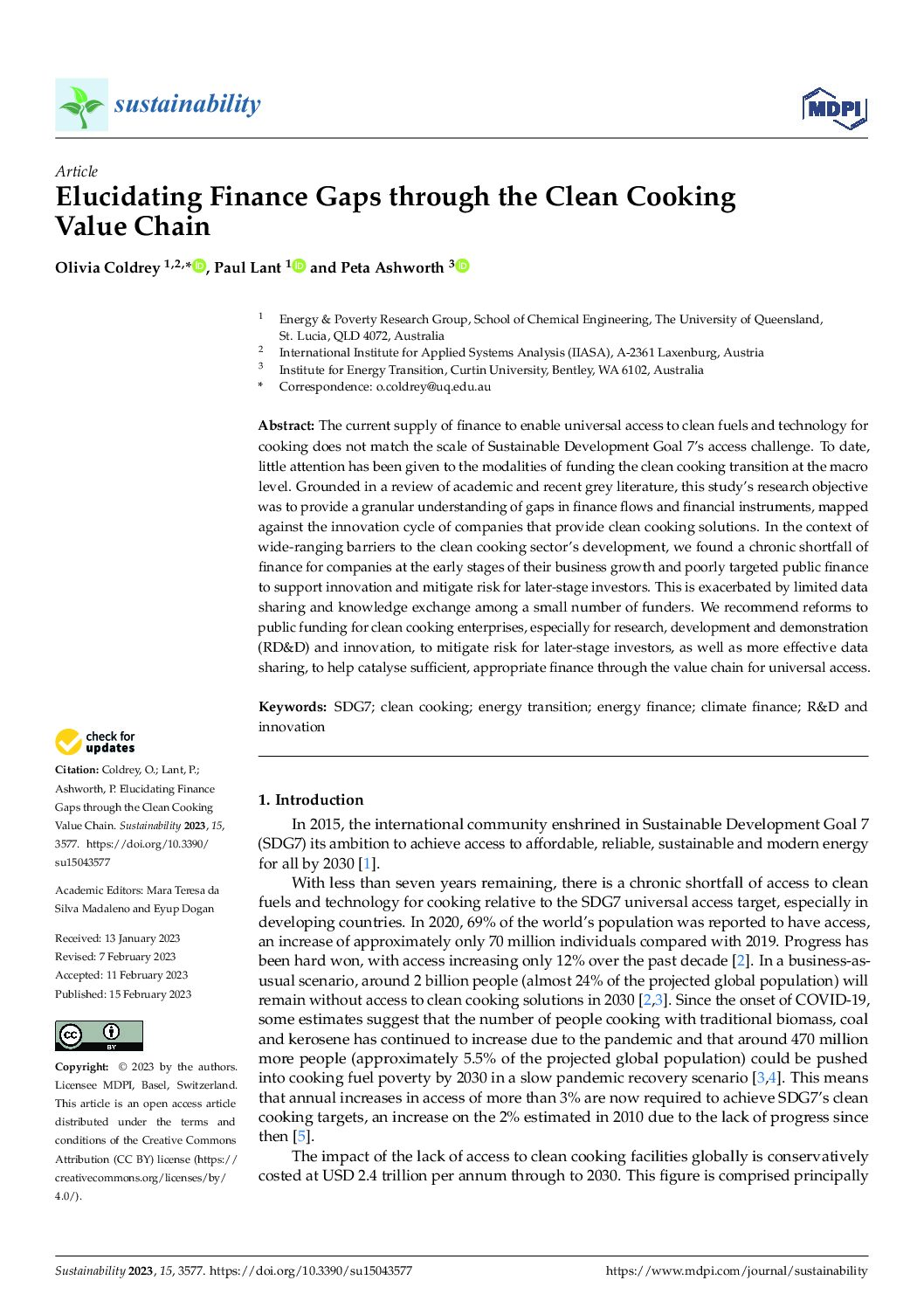This handbook focuses on the following supply chain challenges in clean cooking: reorienting business model priorities, modeling available supply, prioritizing new markets, and assessing value chain sustainability.
This report highlights evdience on key unit economics drivers for clean cooking, with the aim to better articulate the value of clean cooking, reduce transaction costs, support actors across the ecosystem to capitalize on commercial and impact opportunities, and ultimately unlock more investment capital for the sector.
This study identifies gaps in clean cooking financing and recommends reforms to public funding for clean cooking enterprises, especially for research, development and demonstration (RD&D) and innovation, to mitigate risk for later-stage investors, as well as more effective data sharing.



